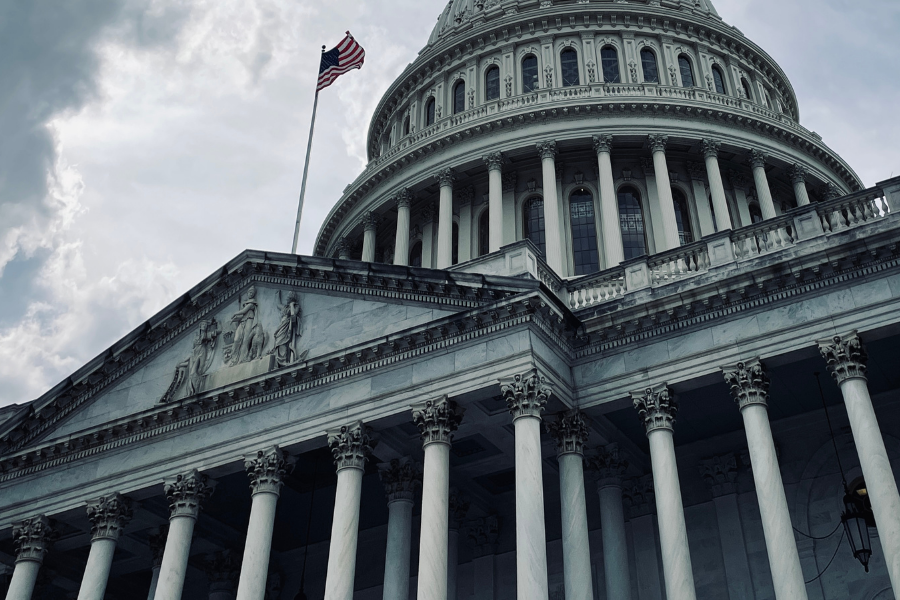
Park Ridge, Ill. (AANA) – In honor of National CRNA Week (Jan. 23-29, 2022), U.S. House of Representatives Jan Schakowsky (D-IL), Rodney Davis (R-IL), Lucille Roybal-Allard (D-CA) and Dave Joyce (R-OH), introduced bipartisan House Resolution 886 on the House floor, “Recognizing the roles and the contributions of America’s Certified Registered Nurse Anesthetists (CRNAs) and their critical role in providing quality health care for the public, especially during the ongoing coronavirus pandemic.”
“Certified Registered Nurse Anesthetists are essential to our health care system, administering more than 50 million anesthetics to patients each year in the U.S.,” said Schakowsky. “CRNAs have provided safe quality patient care since the Civil War and continue to serve on the frontlines during the COVID-19 pandemic. I am so appreciative of the more than 1,600 CRNAs in my home state of Illinois, many of whom are the sole anesthetic provider in their county. I am proud to reintroduce this resolution with my colleagues, to honor student and Certified Registered Nurse Anesthetists nationwide for their service and their continued care.”
“It’s only right to recognize the contributions of our nation’s Certified Registered Nurse Anesthetists and their important role in providing quality health care for the American people,” said Joyce, who is co-chair of the House Nursing Caucus with Roybal-Allard. “I’m grateful for all that CRNAs do to ensure the highest levels of patient safety in anesthesia care, especially as we continue to navigate the ongoing pandemic. I’m proud to lead the introduction of this resolution marking National CRNA Week and ask my fellow Buckeyes to join me in celebrating the more than 2,200 dedicated CRNAs practicing throughout Ohio.”
“For the past two years, our public health system has been strained to limits it didn’t know it could go beyond. Throughout it all, CRNAs and students in nurse anesthesia programs used their unique skills and expertise to step forward in ways that few others can—to care for patients, particularly in advanced airway and ventilation management, vascular volume resuscitation, and advanced patient assessment,” said American Association of Nurse Anesthesiology (AANA) President Dina F. Velocci, DNP, CRNA, APRN. “As highly educated, advanced practice registered nurses, CRNAs have the important role of keeping patients safe and advocating on a patient’s behalf—making CRNAs an indispensable and affordable member of a patient’s healthcare team.”
The congressional resolution highlighted the role CRNAs play in rural healthcare, where they are often the only anesthesia provider at a facility. “…CRNAs are the primary providers of anesthesia care in rural America, enabling health care facilities in these medically underserved areas to offer obstetrical, surgical, trauma stabilization, and pain management services….” Without CRNAs providing anesthesia services, patients may have to travel several hours for emergency and preventative care.
“Nearly 60,000 CRNAs and students in nurse anesthesia programs each year deliver anesthesia to millions of patients, in traditional hospital surgical suites and obstetrical delivery rooms, critical access hospitals, ambulatory surgical centers, Veterans Affairs hospitals, pain management facilities, and in our nation’s military service,” said Velocci. “We are appreciative of the recognition the House of Representatives’ resolution brings to the profession.”
Advanced practice registered nurses such as CRNAs are members of one of the most trusted professions according to Gallup. A recent Centers for Medicare & Medicaid Services report on patient services noted that CRNAs are among the top 20 specialties that served the most beneficiaries between March 2020 and June 2020, during the beginning of the pandemic.
Every year across the United States, CRNAs administer more than 50 million anesthetics. The AANA established CRNA Week in 2000 to educate the public about anesthesia safety and the benefits of receiving anesthesia care from CRNAs. During National CRNA Week, nurse anesthetists educate patients, coworkers, and others about their profession.